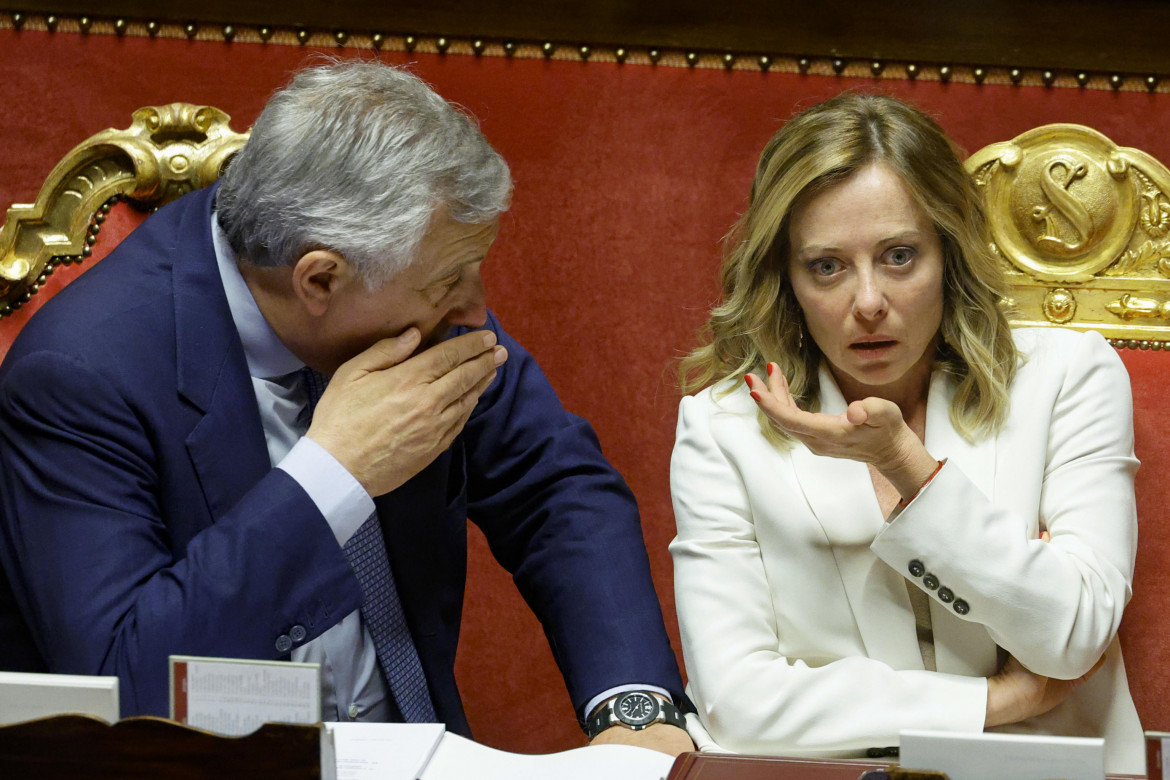Analysis
The Trump effect: Italy is stuck between tariffs and increasing military costs
While waiting for another trade route to be found, the Marco Polos in government are fearing the effects of the tariffs on inflation, furloughs and layoffs, as well as the retaliation that will result from the EU’s already announced reciprocal tariffs.

At the NATO summit in Brussels on Thursday, Italian Foreign Minister Tajani said that Italy was ready to surpass 2 percent of GDP in military spending quickly – but if the new request was for 5 percent, and tariffs were being imposed at the same time, “it is a little difficult,” as the latter are “contrary to” the former.
Tajani went on to highlight the effects that Trump's economic gangsterism could have on the Italian economy and on the resilience of the “Atlantic alliance” between Europe and the United States, quoting Article 2 of NATO’s founding treaty, which states that the countries of the alliance must “eliminate conflict in their international economic policies and encourage economic collaboration between any and all of them.” Tajani recounted that he made the point that “trade war is certainly not part of what Article 2 says. We need to avoid it.”
The recent discovery that, under Trump, a military alliance is not a political alliance – or can only be one on extortionate terms – didn’t seem to have made much of an impression on NATO chief Mark Rutte, nor on U.S. Secretary of State Marco Rubio, even though others such as Norway's Foreign Minister Espen Barth Eide have also expressed the view that the new U.S. tariffs could violate NATO’s Article 2.
At a press conference after the summit, Rutte dodged the issue: “I’m not commenting on other things than directly related to the defence of NATO, the Euro-Atlantic, and of course, when it comes to the Indo-Pacific,” while stressing that it was necessary for the allied countries to spend more than 3% of GDP – more than Italy has said it can afford.
Secretary of State Rubio was just as dismissive: “Some of this hysteria and hyperbole that I see in the global media and some domestic media in the United States about NATO is unwarranted,” he said. “President Trump is not against NATO. He is against a NATO that does not have the capabilities that it needs to fulfill the obligations” under the treaty, he added, while reiterating the new target of 5%.
The scene in Brussels is a useful reality check for the right-wingers in Italy’s government who are in a frenzy of messianic anticipation over Vance’s expected visit to Rome before Easter. According to Lombardy's Lega president, Attilio Fontana, it will be “an opportunity to address the issue of tariffs in a serious way and it will be an important opportunity for our government. The tariffs will have repercussions that would be quite important for our region, which is a major exporter to the United States.”
The other Lega regional president, Veneto's Luca Zaia, was upset on Thursday over the prospects of Vinitaly, the wine industry fair to be held in Verona on April 6-9. “The tariffs are a hard blow to our exports,” Zaia said. “The time has come to explore new scenarios.” His attitude was quite different from the ostentatious Trumpist enthusiasm of Lega leader Salvini, who thinks the tariffs are “an opportunity” and Europe has been imposing “too many limits,” so Italy “must continue to resolutely defend its national interest.”
Giorgia Meloni and Agriculture Minister Francesco Lollobrigida are expected in Verona on Sunday. Both will have a chance to explain how they intend to “defend the interests” of wine producers amid the Trumpian showdown.
And Meloni still has to explain why it’s “childish to choose between the U.S. and the European Union” at a time when a trade war has been launched that threatens to hit their businesses. How come this danger is coming from the godfather of the reactionary international? Isn't Meloni his ally? If she is, the cost of the membership fee is quite steep.
Meloni could focus on the “opportunities,” as Salvini puts it: particularly the Latin America solution, or Mercosur. It was presented by von der Leyen along with a path to India, and Tajani supports it. The government intends to “reach €700 billion in total exports by the end of the legislative term.” While waiting for another trade route to be found, the Marco Polos in government are fearing the effects of the tariffs on inflation, furloughs and layoffs, as well as the retaliation that will result from the EU’s already announced reciprocal tariffs.
With each passing day, the government remains reluctant to act and keeps dragging its feet. And it is caught in a tightening vice between increased military spending and the effects of tariffs. Increased military spending is likely to throw off the balance on the interest to be paid on the national debt. We will see this in the next budget bill. That is why the government is resisting the European rearmament plan proposed by von der Leyen. Tariffs, on the other hand, are set to kneecap GDP. On Thursday, the EU Commission said it was not yet possible to measure the impact of the tariffs on each country “because supply chains are interconnected.” Confindustria has estimated a drop of 0.4-0.5 percent of GDP in 2025. But for the government, the important thing now is to avoid having to make a choice. For as long as possible.
Originally published at https://ilmanifesto.it/effetto-trump-il-governo-allangolo-tra-dazi-e-aumento-delle-spese-militari on 2025-04-04
